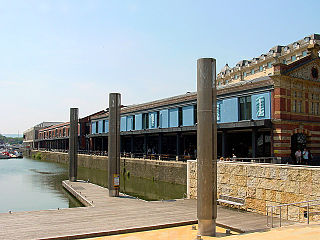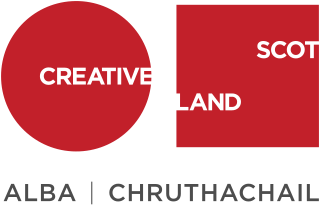
The British Independent Film Awards is an organisation that celebrates, supports and promotes British independent cinema and filmmaking talent in United Kingdom. Nominations for the annual awards ceremony are announced in early November, with the ceremony itself taking place in early December.

The New Zealand Film Commission is a New Zealand government agency formed to assist with creating and promoting New Zealand films. It was established under the New Zealand Film Commission Act 1978.
The UK Film Council (UKFC) was a non-departmental public body set up in 2000 to develop and promote the film industry in the UK. It was constituted as a private company limited by guarantee, owned by the Secretary of State for Culture, Media and Sport, and governed by a board of 15 directors. It was funded from various sources including the National Lottery. John Woodward was the Chief Executive Officer of the UKFC. On 26 July 2010, the government announced that the council would be abolished; Although one of the parties elected into that government had, for some months, promised a bonfire of the Quangos, Woodward said that the decision had been taken with "no notice and no consultation". UKFC closed on 31 March 2011, with many of its functions passing to the British Film Institute.
The Moving Image Archive is a collection of Scottish film and video recordings at the National Library of Scotland, held at Kelvin Hall in Glasgow, UK. There are over 46,000 items within the collection, and over 2,600 of these are publicly available online at the library's Moving Image Catalogue.

Sheffield DocFest, short for Sheffield International Documentary Festival (SIDF), is an international documentary festival and Marketplace held annually in Sheffield, England.

Watershed opened in June 1982 as the United Kingdom's first dedicated media centre. Based in former warehouses on the harbourside at Bristol, it hosts three cinemas, a café/bar, events/conferencing spaces, the Pervasive Media Studio, and office spaces for administrative and creative staff. It occupies the former E and W sheds on Canon's Road at Saint Augustine's Reach, and underwent a major refurbishment in 2005. The building also hosts UWE eMedia Business Enterprises, Most of Watershed's facilities are situated on the second floor of two of the transit sheds. The conference spaces and cinemas are used by many public and private sector organisations and charities. Watershed employs the equivalent of over seventy full-time staff and has an annual turnover of approximately £3.8 million. As well as its own commercial income, Watershed Arts Trust is funded by national and regional arts funders.

Raindance is an independent film festival and film school that operates in major cities including London, Los Angeles, New York, Vancouver, Toronto, Montreal, Budapest, Berlin, and Brussels. The festival was established in 1992 by Elliot Grove to be the voice of British filmmaking, and it showcases features and shorts by filmmakers from around the world to an audience of film executives and buyers, journalists, film fans and filmmakers.
Wildscreen is a wildlife conservation charity based in Bristol, England.

Birds Eye View (BEV) is a UK charitable organisation established in 2002 to celebrate and support women's work in film, most notably by way of an annual film festival in London that places women at the heart of the creative vision. The last festival was held in 2014 and since 2015 they have operated a year-round charitable mission to bring ever-greater audiences to films by women, funded by the British Film Institute, under their 'Reclaim The Frame' banner.

Arab cinema or Arabic cinema refers to the film industry of the Arab world.
Screen Australia is the Australian Federal Government's key funding body for the Australian screen production industry, created under the Screen Australia Act 2008. From 1 July 2008 Screen Australia took over the functions of its predecessor agencies the Australian Film Commission (AFC), the Film Finance Corporation Australia (FFC) and Film Australia Limited.

Creative Scotland is the development body for the arts and creative industries in Scotland. Based in Edinburgh, it is an executive non-departmental public body of the Scottish Government.
Light House Media Centre, often simply referred to as Light House, is a cinema, gallery and media hub for Wolverhampton and the surrounding area. Light House is located within the historic former Chubb Locks Factory in the city centre. They describe themselves as:

The National Screen Institute - Canada is a non-profit organization headquartered in Winnipeg, Manitoba, Canada. The organization describes itself as "Serving content creators across Canada to tell unforgettable stories through industry-informed training and mentoring."
Genevieve Clay-Smith is an Australian writer and director. She is an advocate of inclusive filmmaking.
The Aesthetica Short Film Festival (ASFF) is an international film festival which takes place annually in York, England, at the beginning of November. Founded in 2011, it is a celebration of independent film from around the world, and an outlet for supporting and championing filmmaking. With over 400 films screenings and 100 industry events, ASFF is one of the UK's key film festivals.
The Creative Industries Federation is a national organisation for all the UK's creative industries, cultural education and arts. It advocates for the sector, aiming to ensure that the creative industries are central to political, economic and social decision-making.

A vertical video is a video created either by a camera or computer that is intended for viewing in portrait mode, producing an image that is taller than it is wide. It thus sits in opposition to the multiple horizontal formats normalised by cinema and television, which trace their lineage from the proscenium theatre, Western landscape painting traditions, and our visual field.
Tartan Features is a filmmaking network and distribution platform based in Scotland. It supports the production of micro-budget feature films.
5050x2020 is a hashtag used to campaign for gender parity in the film industry. The campaign was launched by the Swedish Film Institute at the Cannes Film Festival in 2016.










